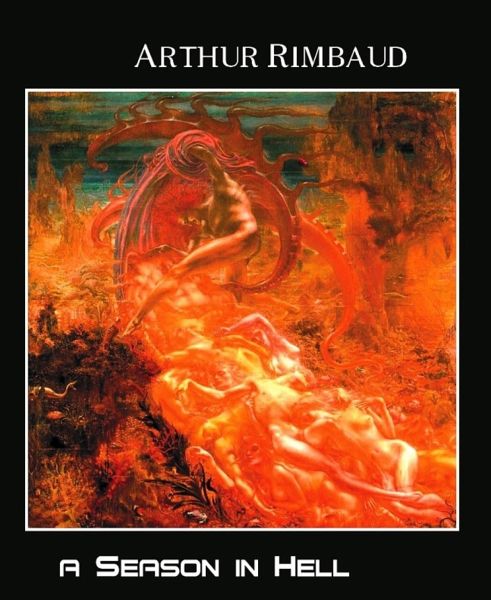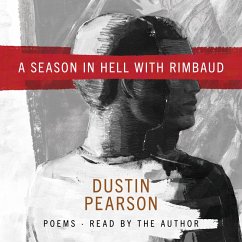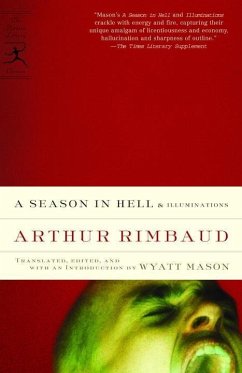
A Season in Hell (eBook, ePUB)
Versandkostenfrei!
Sofort per Download lieferbar
2,99 €
inkl. MwSt.
Weitere Ausgaben:

PAYBACK Punkte
0 °P sammeln!
A Season in Hell is an extended poem written and published by French writer Arthur Rimbaud. The book had a considerable influence on later artists and poets, for example the Surrealists. Henry Miller was important in introducing Rimbaud to America in the sixties. He once attempted an English translation of the book and wrote an extended essay on Rimbaud and A Season in Hell titled The Time of the Assassins. The poem is loosely divided into nine parts, some of which are much shorter than others. They differ markedly in tone and narrative comprehensibility, with some, such as "Bad Blood," 'being...
A Season in Hell is an extended poem written and published by French writer Arthur Rimbaud. The book had a considerable influence on later artists and poets, for example the Surrealists. Henry Miller was important in introducing Rimbaud to America in the sixties. He once attempted an English translation of the book and wrote an extended essay on Rimbaud and A Season in Hell titled The Time of the Assassins. The poem is loosely divided into nine parts, some of which are much shorter than others. They differ markedly in tone and narrative comprehensibility, with some, such as "Bad Blood," 'being much more obviously influenced by Rimbaud's drug use than others, some argue. Academic critics have arrived at many varied and often entirely incompatible conclusions as to what meaning and philosophy may or may not be contained in the text, and will continue to do so.
Dieser Download kann aus rechtlichen Gründen nur mit Rechnungsadresse in A, B, CY, D, DK, EW, E, FIN, F, GR, IRL, I, L, M, NL, P, S, SLO, SK ausgeliefert werden.










